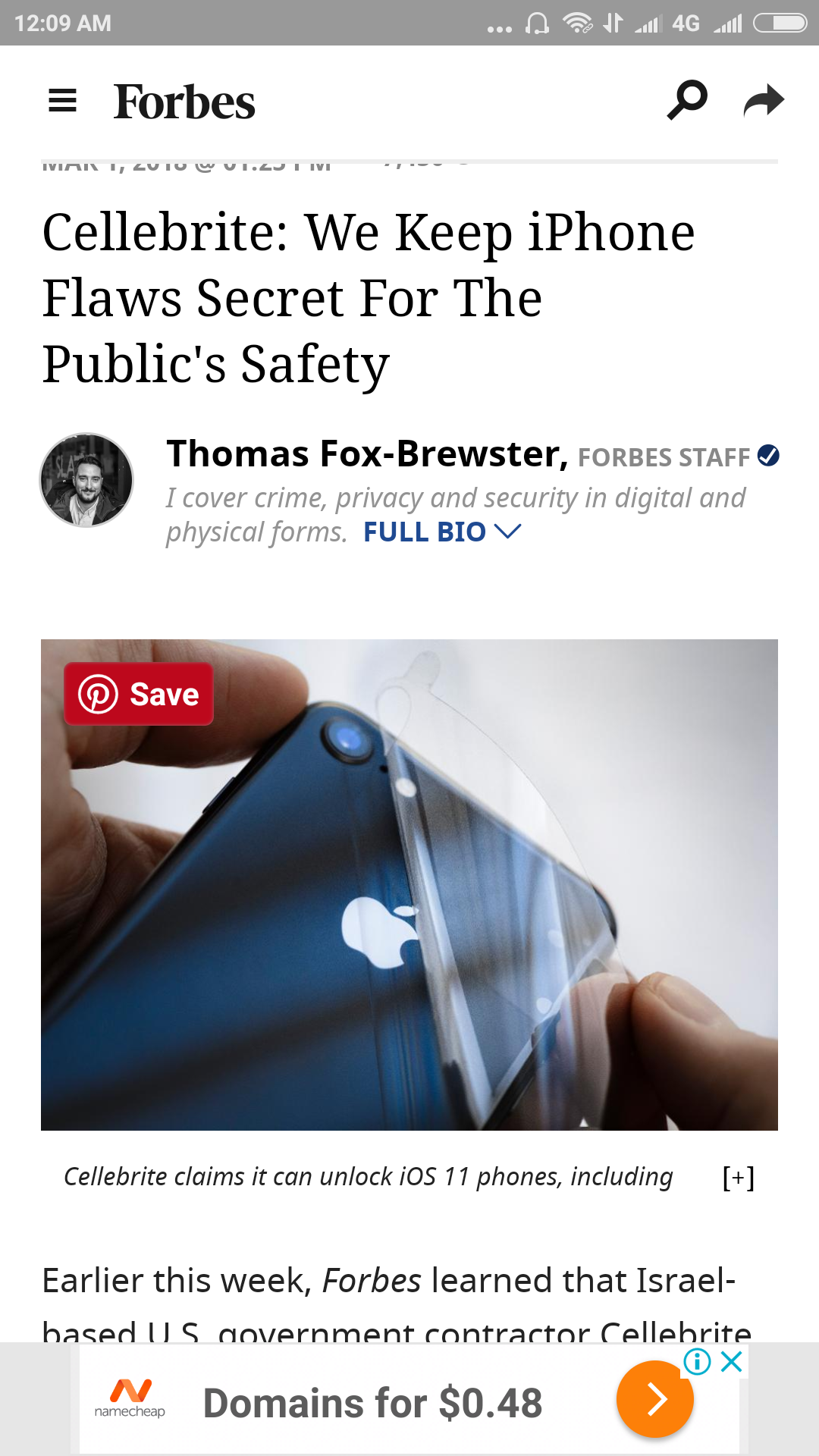Earlier this week, Forbes learned that Israel-based U.S. government contractor Cellebrite was touting the ability to unlock the majority of iOS models on the market. That included devices running the latest Apple operating system iOS 11.2.6, and the newest models, the iPhone 8 and X. It hasn't been forthcoming with any details on just how it's doing that and in an interview chief marketing officer, Jeremy Nazarian wouldn't be drawn on providing many specifics.
That Nazarian is speaking with the press at all is perhaps surprising, given the company's typically taciturn approach. There's a very good reason for the company's reticence, especially on the details of the iPhone vulnerabilities it finds. Each one is like gold dust, allowing possible penetration into one of the most secure phones on the market. Cellebrite doesn't want to give up the secrets that are at the very core of its value to law enforcement and forensics specialists, who want consistent access to iPhones, or any smartphone that potentially holds vital evidence. Give up any details, ones that Apple's security technicians can latch onto to develop fixes, and the company risks kissing goodbye to its unique unlocking capabilities.
But it's that very business model that requires vulnerabilities to be kept away from Apple, which would patch the security holes for all customers if it was informed, that criticism has been leveled at the company. As Electronic Frontier Foundation's senior staff attorney Adam Schwartz warned: "All of us who're walking around with this vulnerability are in danger."
Hi! I am a robot. I just upvoted you! I found similar content that readers might be interested in:
https://www.forbes.com/sites/thomasbrewster/2018/03/01/apple-iphone-vulnerabilities-kept-secret-by-cellebrite/
Downvoting a post can decrease pending rewards and make it less visible. Common reasons:
Submit